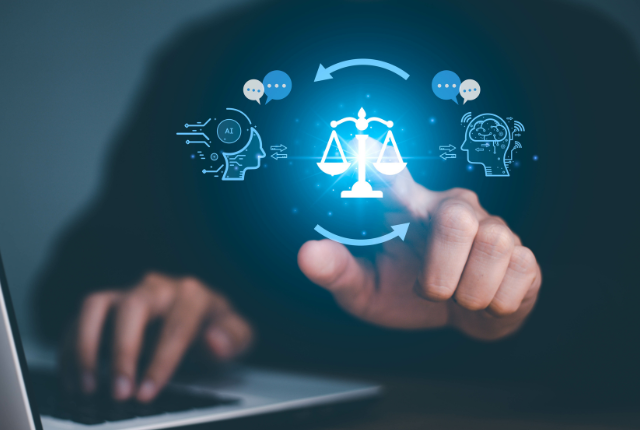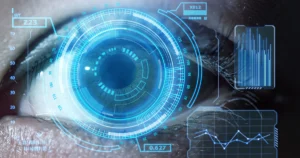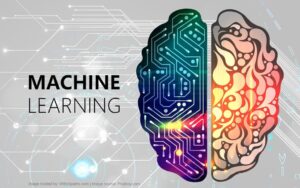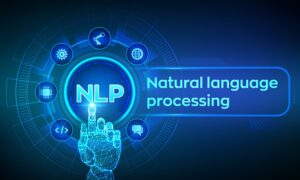Artificial intelligence (AI) is one of the most powerful and transformative technologies of our time, impacting sectors such as healthcare, banking, and everyday life. However, as AI technology continues to develop, ethical questions surrounding its use are becoming increasingly important. The development and use of AI raise critical questions about fairness, responsibility, and accountability. The lack of a robust ethical framework could lead to this technology, designed to improve lives, harming people, exacerbating biases, or violating privacy. Anyone who builds, uses, or regulates AI systems must understand these ethical issues.
Bias and Discrimination in AI Systems
Bias in algorithms is one of the most important ethical issues in AI. AI systems learn from data, and if that data is biased or unbalanced, the system can draw unfair or discriminatory conclusions. For instance, training a recruitment algorithm on human-biased previous recruitment data could unintentionally favor certain groups. Such practices can lead to widespread bias in areas such as recruitment, loan applications, and even risk assessment within the criminal justice system. Addressing bias requires careful data selection, constant data monitoring, and an open attitude toward how the algorithm makes its decisions.
Privacy and Data Protection Concerns
AI requires large amounts of personal data to function effectively, posing a significant privacy concern. Artificial intelligence (AI) can collect, analyze, and store users’ personal information without their consent, for example, through facial recognition technology and targeted advertising. Such practices can lead to data misuse, illegal access, and even identity theft. Ethical AI development must prioritize data protection, encryption, and compliance with privacy regulations such as the General Data Protection Regulation (GDPR). People should also have a greater say in how their data is collected and used.
Black-Box Problem and Lack of Transparency
Another significant ethical concern with AI is the lack of clarity about how algorithms make their decisions. This dilemma is often called the “black box problem” because the inner workings of AI models are so complex that even their creators may not fully understand how they arrive at certain conclusions. Because AI systems are difficult to explain, it is difficult to hold them accountable for errors or adverse consequences. To ensure the ethical acceptance of AI, developers must strive to build systems that are understandable, explicable, and open to scrutiny by regulators, stakeholders, and the public.
Unemployment and Economic Inequality
AI-driven automation has the potential to replace jobs in many sectors, such as manufacturing, customer service, and transportation. While automation can make work smoother and more cost-effective, it can also lead to millions of people becoming unemployed or forced into low-paying jobs, increasing economic inequality. Ethical issues arise when technological progress benefits only a small segment of society, while others lose jobs. To address this, policymakers, businesses, and schools must work together to equip workers with new skills and improve their existing ones, ensuring a fair and open transition to an AI-driven economy for all.
The Use of AI in Surveillance
The use of AI in surveillance technology has raised numerous ethical and human rights concerns. For example, governments and businesses are increasingly using facial recognition technology to monitor public spaces. Proponents argue that such tools can improve security, while opponents argue that they can also lead to widespread surveillance, violations of civil rights, and political control. Ethical AI development must balance protecting civil rights with meeting security needs. This means that surveillance technology must be strictly regulated and overseen.
Accountability and Responsibility for AI Decisions
When AI systems make mistakes or harm people, it is difficult to determine who bears responsibility. Is it the AI itself, the developers, or the companies that built the systems? This lack of clear delineation creates legal and ethical loopholes in AI governance. Without clear accountability mechanisms, people harmed by AI errors may not receive a fair trial. Establishing accountability frameworks, legal requirements, and ethical principles is crucial to ensuring the responsible development and use of AI systems.
Ethical Issues of AI and Military Autonomous Weapons
One of the most controversial applications of AI is autonomous weapon systems, which can select and attack targets without human intervention. The concept of machines potentially making life-or-death decisions carries significant moral and ethical implications. Those who oppose this type of technology worry that it could exacerbate conflicts, make it harder to hold combatants accountable, and lead to increased civilian casualties. Many scientists and human rights organizations support the development of international treaties to control or prohibit the use of AI in lethal autonomous weapons.
Conclusion
The ethical issues surrounding AI are more than just philosophical debates; they also have real-world implications that could impact human rights, privacy, and fairness worldwide. As AI continues to develop, it is crucial to ensure that the technology is developed and used responsibly, based on openness, accountability, and fairness. Finding a balance between innovation and ethics will determine whether AI is a tool that benefits everyone or a dangerous one. Individuals, businesses, and governments must work together to address these issues and create an AI-driven future that respects human rights and equality.
FAQs
1. What are the most important ethical issues currently facing AI?
One of the most significant concerns about bias in AI algorithms is the potential for discrimination and unfair outcomes in areas such as recruitment, lending, and law enforcement.
2. What can be done to reduce bias in AI?
Using diverse datasets, regularly evaluating algorithms, and ensuring transparency around AI decision-making processes can all help prevent bias.
3. What does openness mean in AI?
Transparency ensures that those involved with AI systems have insight into their decision-making processes. This builds trust and ensures accountability for errors.
4. What role does the public play in AI ethics?
The public is important because it can stay informed, promote ethical practices, and hold developers and legislators accountable for the use of AI.
5. Should there be global rules for AI?
Yes, we need global rules to prevent abuse, ensure fairness, and uphold ethical standards in all countries.




